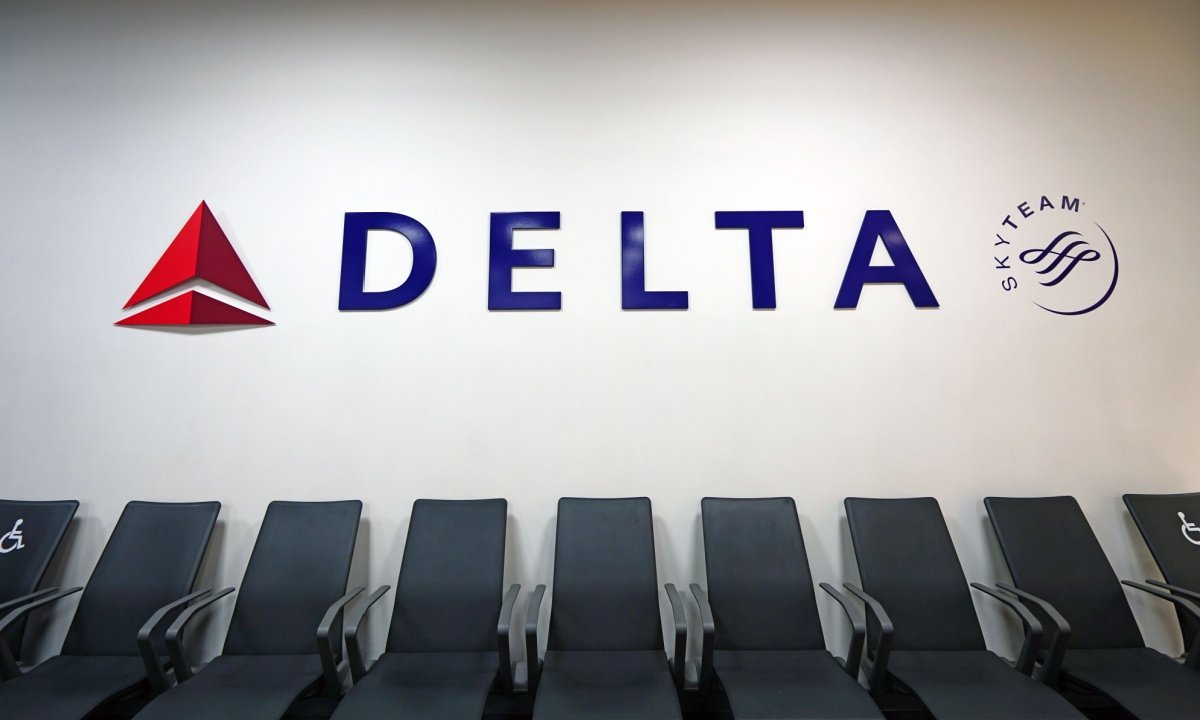AI in Travel
Delta Air Lines Tests AI-Powered Personalized Pricing

Delta Air Lines is testing a new artificial intelligence (AI) pricing system that tailors fares to individual customers, a move that could reshape how airline tickets are sold and priced.
AI in Travel
Now, AI Set To Shape Business Travel: Developments From GBTA 2025

Thursday, July 24, 2025
From new products to new partnerships, the 56th annual GBTA Convention, which took place in Denver, showcased a trade show floor packed with the latest technological advances and services that are changing the business travel game. Here’s a look at some of the latest news from the show, illustrating how technology and new ideas are creating more efficient travel management.
Emburse Enhances Business Travel Expense Management
Emburse, a leading expense management platform, unveiled new integrations with American Airlines AAdvantage Business and DoorDash for Business. These integrations enable business travelers to have their receipts automatically imported into Emburse, significantly simplifying the expense reporting process. According to Emburse, this innovation helps reduce fraud risk and provides finance teams with real-time spending insights. Emburse AI also merges receipts and credit card transactions into a single entry, further enhancing efficiency.
Extended Stay America’s Client Connect Program
Extended Stay America introduced its new Client Connect program, specifically designed for business travelers who require extended stays. This program targets sectors such as construction, healthcare, and military services, providing accommodations for professionals who need longer-term lodging solutions. Available through web and mobile platforms, Client Connect offers a seamless booking experience for clients and immediate access to the company’s suite of business travel services.
BizTrip.AI’s Launch in the Business Travel Sector
At the GBTA Convention, corporate AI platform BizTrip.AI was launched, co-founded by Tom Tomary (former CEO of Yapta) and Scott Persinger (AI innovator). BizTrip.AI aims to revolutionize business travel by modernizing processes around airfare and hotel bookings, itinerary changes, and price tracking. The platform is designed to act as a personal concierge for business travelers, providing cost optimization for travel planners. With its chat feature and automated personal assistant, BizTrip.AI promises to make travel management easier for both individuals and corporations.
American Express Global Business Travel and Chooose Partnership
American Express Global Business Travel (Amex GBT) expanded its collaboration with Chooose, a PhocusWire Hot 25 Startup for 2023. This partnership focuses on upgrading hotel emissions tracking and reporting tools. The new features, set to launch in Q3 2025, will provide city-level emissions reporting, customizable emissions calculations, and full data integration into Amex GBT’s Global Trip Record and Data Lake. This innovation aligns with Amex GBT’s commitment to sustainability in business travel. Additionally, the company introduced Guest T&E, a comprehensive platform for managing travel and expenses for non-employees.
Amadeus and Globespan: Strengthening Corporate Travel
Amadeus, a global leader in travel technology, partnered with the international travel management company Globespan at GBTA 2025. This alliance enables Globespan to offer Amadeus Cytric to customers in the United States and Canada. Cytric is a corporate travel and expense management platform known for its seamless integration with Microsoft Teams. During the convention, Globespan issued a live NDC (New Distribution Capability) ticket from Air Canada, marking a significant milestone in corporate travel technology.
SAP Concur’s New Innovations
SAP Concur also made waves at the GBTA Convention with three key innovations. The first is a new booking agent designed to facilitate “policy-compliant trips” without requiring travelers to manage all details themselves. SAP Concur also introduced enhancements to its Concur Request platform, which now includes travel advisories and budget approval features for recurring trips. Additionally, the Concur Travel platform now allows travelers to purchase third-party services via Trip Extras, making it easier to book within company policies.
Navan Introduces AI-Driven Solutions
Navan, another player in the business travel technology space, introduced two new AI-powered products designed to streamline the traveler experience. The first product is an AI-powered hotel check-in solution that automates hotel credit card authorizations for business travelers and confirms late checkouts. The second innovation is a content aggregation platform for airport bookings, which utilizes the latest NDC standard to provide more efficient and personalized travel options.
DerbySoft’s AI Voice Agent for Travel Companies
DerbySoft, a leader in hospitality technology, introduced its AI Voice Agent to optimize processes for travel companies. The AI Voice Agent is particularly beneficial in the business travel sector, where a significant number of global accommodation bookings still require manual intervention. The tool can handle booking confirmations, verify payment information, request invoices, and manage modifications and cancellations. This development aims to reduce operational inefficiencies in the accommodation booking process.
Impact on the Future of Business Travel
These advancements are reshaping the way businesses approach corporate travel management. From AI-driven solutions and expense management platforms to new booking and accommodation services, these developments are enhancing the overall business travel experience. The integration of sustainable practices, such as Amex GBT’s emission tracking and reporting, reflects the growing focus on eco-conscious travel choices. Furthermore, the seamless integration of technology platforms across multiple service providers, such as Emburse, SAP Concur, and DerbySoft, highlights the increasing role of digital tools in optimizing business travel.
As changing business travel dynamics continue to shape the future, two things are certain: automation, data consolidation and the ongoing challenge to be sustainable will lead the way. These developments will address cost-burden, enhance passenger experience and make the travel more manageable. For business travelers and travel managers, the journey ahead is one that will be increasingly seamless, data driven and, personal.
AI in Travel
When AI Deepfakes Send Tourists Chasing Illusions – Open Jaw
AI in Travel
How many Aussies are using AI to plan travel, who’s utilising it & what exactly are they using it for?

Nearly a third of Aussies are now using artificial intelligence (AI) to help plan their holidays, according to new research from Compare the Market.
In a survey of over 1,000 Australian adults, three in ten (28.8%) respondents said they relied on AI tools to lock in travel deals, scout destinations and find activities.
More than one in ten (11.5%) are specifically using AI for destination recommendations – the most popular use of AI in travel – while a similar number (10.3%) are seeking out deals.
Meanwhile, nearly one in ten (9.4%) look for recreational activities and accommodation, while one in 11 (9%) use AI to create itineraries, and nearly the same number (8.2%) search for flights and transport. A small percentage (3.2%) use AI to understand currency conversion.
“Australians love a good holiday and have never been afraid to ask for help when planning the perfect getaway,” Compare the Market’s Chris Ford says.
“Our latest data highlights a shift in the way travellers are approaching their planning, with convenience, personalisation and speed driving the adoption of innovative AI tools.”
When it comes to who’s using the technology, the survey reveals a clear generational divide.
The study found that, unsurprisingly, Gen Z and Millennials are the most likely to engage with AI when planning a trip.
On the other hand, the vast majority (93%) of Baby Boomers and three-quarters (76%) of Gen Xers said they’ve never used AI tools to help book a holiday.
Interestingly, Gen Z and Gen X lean on AI for destination recommendations, Millennials for recreational activities, and Baby Boomers primarily for accommodation.
Advice, but not an advisor
While AI adoption isn’t surprising, Ford cautions that it should be treated as a tool, not a travel agent – and travellers should always sense-check recommendations.
“It’s likely that travellers are using these tools in addition to chatting with travel agents, conducting desktop research or seeking ideas and inspiration from social media,” he notes.
Despite being a “great starting point” in the overall journey, Ford says that it’s important to “always ensure you’re crossing your ‘t’s and dotting your ‘I’s” when using AI.
“Many of these tools and services are still in their infancy stage and may not be 100% accurate, so do your own research to ensure you’re equipped with the right tools and information for your trip,” he states.
“The last thing we want to see is anyone getting themselves into a potentially dangerous or unsafe situation based on the recommendations from AI.”
With this in mind, Ford also reminds travellers not to overlook insurance.
“Travel insurance is designed to protect you against unexpected events when you’re travelling domestically or internationally and AI may not be forthcoming with these types of incidents,” he says.
“The type of cover offered by insurers can vary, but consider policies that cover scenarios for the kind of holiday you’re booking.”
Where AI “falls short”
Karryon Features Editor Gaya Avery says while AI handles bookings, great travel agents go further — acting as trusted advisors, curators and problem-solvers.
“They don’t just book travel – they shape it, tailoring experiences to each client’s needs. That’s where artificial intelligence falls short,” she said.
“Travel professionals provide value: personalised service, insider knowledge and human connections that AI simply can’t replicate.”
So does high AI uptake mark the death of the travel agent? Get Gaya’s take on the technology from earlier this year here.
-

 Brand Stories3 days ago
Brand Stories3 days agoBloom Hotels: A Modern Vision of Hospitality Redefining Travel
-

 Brand Stories2 days ago
Brand Stories2 days agoOlive Living: India’s Intelligent, Community-Centric Hospitality Powerhouse
-

 Destinations & Things To Do3 days ago
Destinations & Things To Do3 days agoUntouched Destinations: Stunning Hidden Gems You Must Visit
-

 AI in Travel3 days ago
AI in Travel3 days agoAI Travel Revolution: Must-Have Guide to the Best Experience
-

 Brand Stories3 weeks ago
Brand Stories3 weeks agoVoice AI Startup ElevenLabs Plans to Add Hubs Around the World
-

 Brand Stories2 weeks ago
Brand Stories2 weeks agoHow Elon Musk’s rogue Grok chatbot became a cautionary AI tale
-

 Asia Travel Pulse3 weeks ago
Asia Travel Pulse3 weeks agoLooking For Adventure In Asia? Here Are 7 Epic Destinations You Need To Experience At Least Once – Zee News
-

 AI in Travel3 weeks ago
AI in Travel3 weeks ago‘Will AI take my job?’ A trip to a Beijing fortune-telling bar to see what lies ahead | China
-

 Brand Stories3 weeks ago
Brand Stories3 weeks agoChatGPT — the last of the great romantics
-

 The Travel Revolution of Our Era1 month ago
The Travel Revolution of Our Era1 month agoCheQin.ai Redefines Hotel Booking with Zero-Commission Model














You must be logged in to post a comment Login